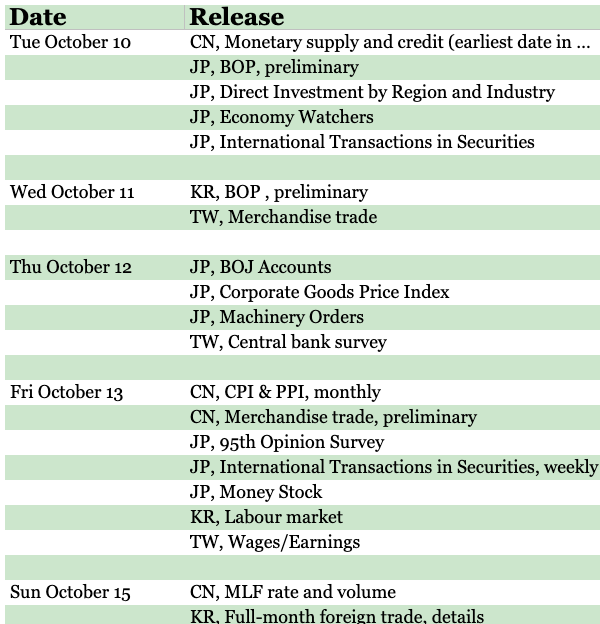Last week, next week
A summary of what happened on East Asia Econ last week, and what to look for in the next seven days.
This is what happened on East Asia Econ this week.
Thematic
A short video summarising the arguments made in our recent piece on how China is Living without the US.
Cycle
Cycle update – tentative improvement. We have been hopeful that the export cycle would start to lift. But recent indicators don't look convincing. It still looks like the cycle is bottoming rather than really starting to improve.
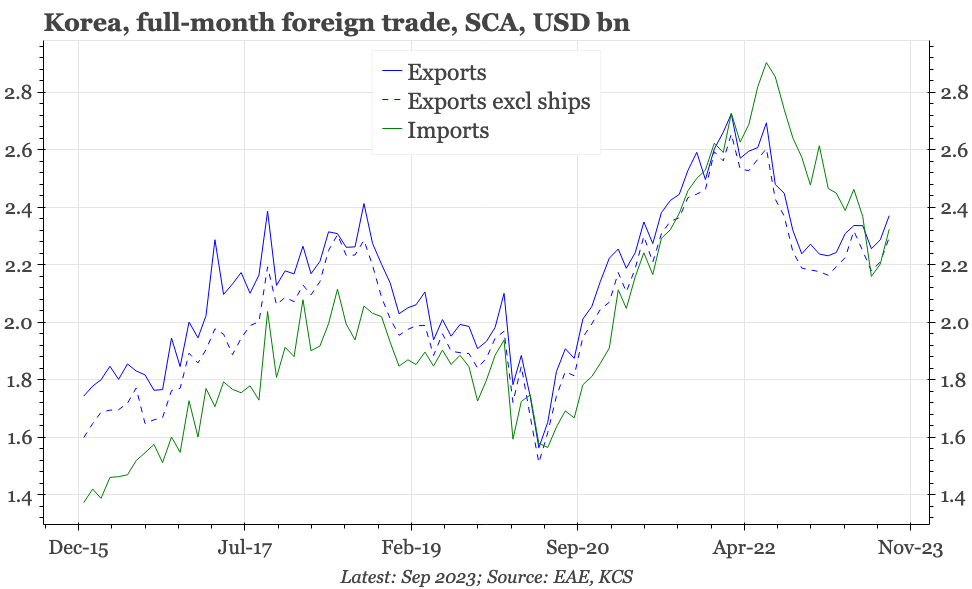
Cycle update – labour market tightest since the 1980s. The BOJ Tankan indicates activity is decent, inflation not likely to subside much, and that the labour market should tighten a lot more. This is all likely to make the BOJ more hawkish than not, but we'd still prefer to see the labour market tightening getting reflected in actual unemployment and wages.
Cycle update – the BOJ's key problem. Trends shown by the two data releases on Friday are related: first, wage growth below inflation, and second, weak consumption. If the labour market doesn't tighten and wage growth lift, the BOJ will be pressured to raise rates to stop JPY depreciation, and so hold back imported inflation.
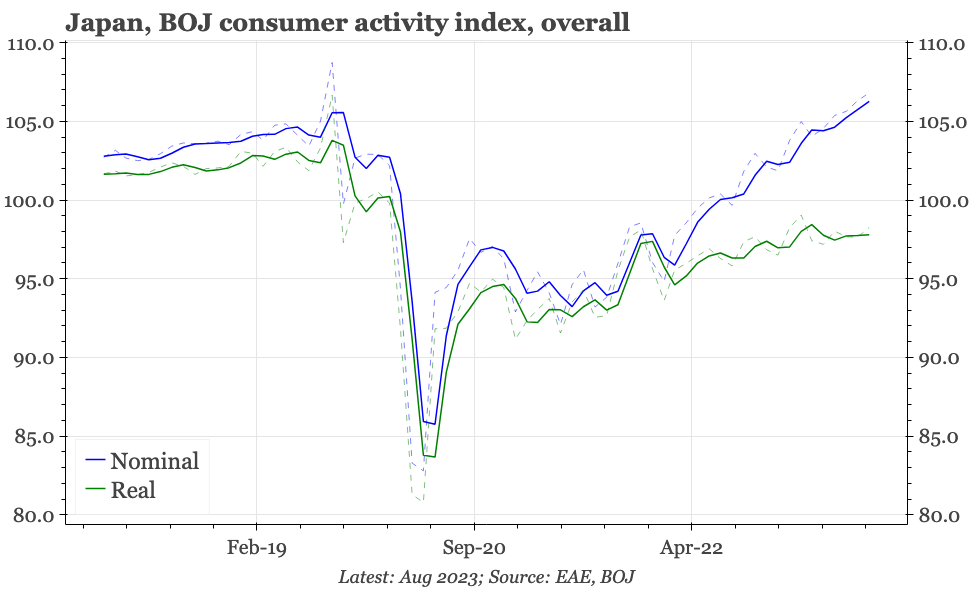
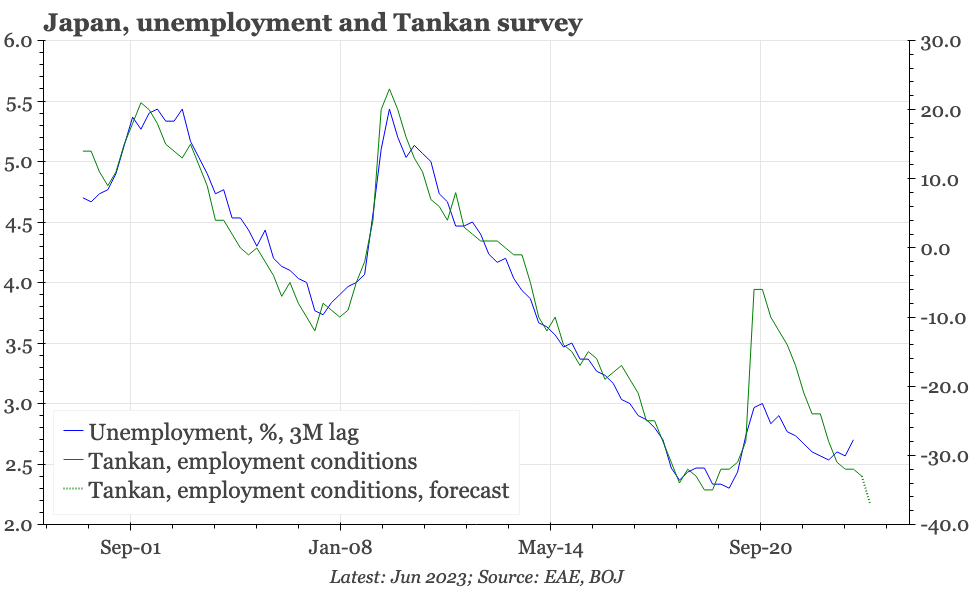
Cycle update – inflation up again. Inflation in Korea rose again in September, picking up to 3.7% YoY. Core inflation was flat YoY, but picked up sequentially. With US rates still so high, our model points to a high risk of further BOK tightening.
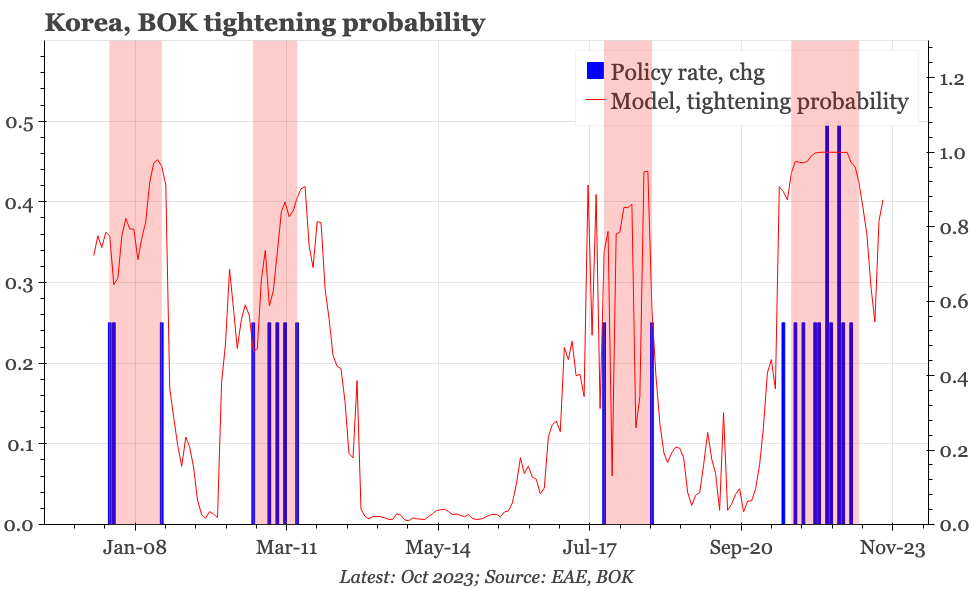
After the long national day holiday last week, China gets back to work tomorrow. We should get September monetary data sometime early in the week, and there's inflation data on Friday. The PBC might also release its Q3 sentiment surveys, which are important for assessing inflation expectations, and attitudes towards the property market and financial savings. In Japan, the Corporate Goods Price Index on Thursday will indicate whether JPY weakness and higher oil prices are feeding into a rebound in import price inflation. For Korea, the highlight will be September labour market data on Friday. In Taiwan, the focus will be whether the September trade data to be released Wednesday show any improvement in exports.
